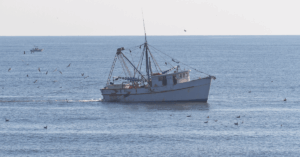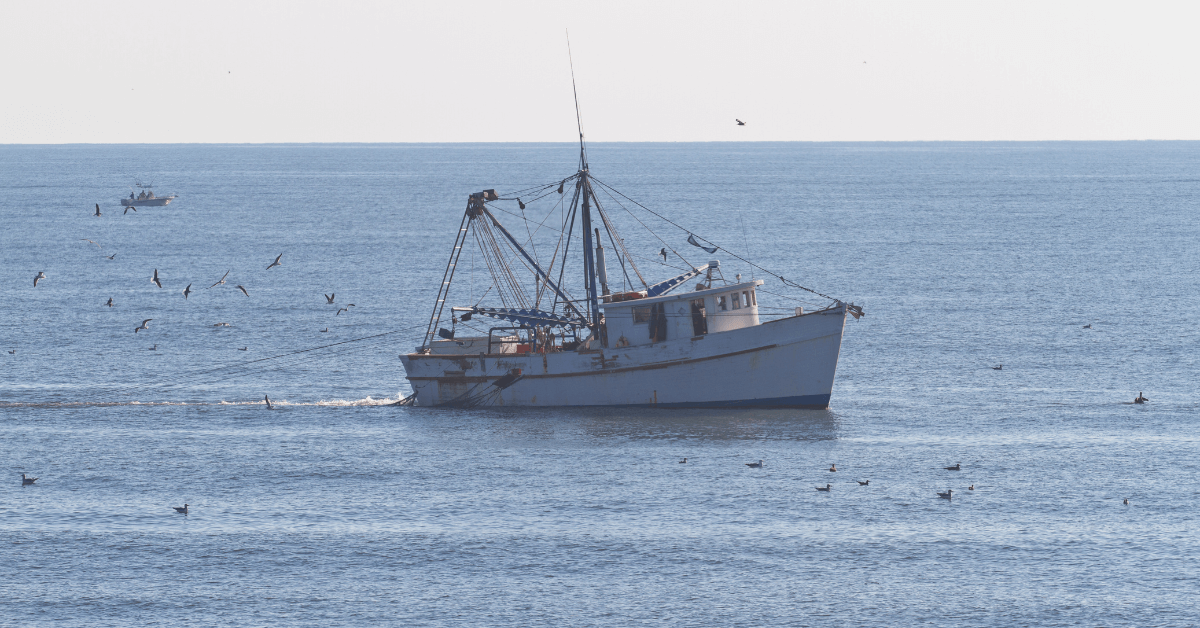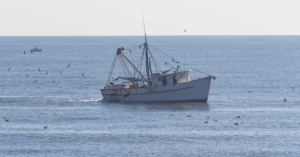
Russian Navy Conducts Baltic Sea Drills To Counter Underwater Saboteurs
August 25, 2025
Ukraine Drone Strikes Hit Russia’s Ust-Luga Port, Syzran Refinery, & Nuclear Plant
August 26, 2025

Ghana has adopted a new Fisheries and Aquaculture Act, 2025 (Act 1146), introducing major reforms to tackle illegal, unregulated and unreported (IUU) fishing, protect artisanal fishers, and secure the country’s growing seafood industry.
The bill was passed by Parliament in July 2025 and was signed into law by President John Dramani Mahama on August 19. IUU fishing has been a growing problem across West Africa, costing Ghana alone between $14.4 million and $23.7 million every year.
Industrial trawlers have repeatedly encroached on areas reserved for artisanal fishing, threatening small pelagic species that are crucial for local food supply. In 2021, the European Union issued Ghana a yellow card, warning that the country could lose access to European seafood markets unless stronger action was taken against IUU fishing.
According to the Ministry, the new legislation is part of efforts to avoid trade sanctions and protect seafood exports, which have now grown to more than $425 million annually, making it one of Ghana’s fastest-growing non-traditional exports.
One of the key reforms under the Fisheries and Aquaculture Act, 2025, is the expansion of the Inshore Exclusive Zone (IEZ). The zone, previously six nautical miles, has now been doubled to twelve nautical miles to create more space for artisanal fishers and to protect breeding grounds. Officials said this change will help sustain the livelihoods of over 2.7 million artisanal fishers and ensure food security for millions of Ghanaians.
The Act also establishes an Independent Fisheries Commission, a fully autonomous body tasked with developing, managing, and conserving fisheries and aquaculture resources. This body will strengthen regulation, close compliance gaps, and improve enforcement against illegal fishing.
Another major feature of the new law is tougher penalties for vessels involved in IUU fishing. The Ministry said these measures will help restore depleted fish stocks, protect marine biodiversity, and improve safety, security, and welfare standards for fishing crews and workers.
The Environmental Justice Foundation (EJF), which has been monitoring IUU fishing in Ghana, welcomed the new law. Data collected by EJF shows that the average annual income of artisanal canoes has dropped by as much as 40 percent over the past 15 years, while more than 90 percent of small-scale fishers report declining catches.
In recent years, the rise of the “saiko trade” has worsened the crisis. Saiko, originally a barter system where industrial bycatch was exchanged for farm goods, has transformed into an illegal trade where industrial trawlers transfer frozen bycatch at sea to small canoe operators for resale. This practice, heavily linked to Chinese-backed trawlers, has further depleted small pelagic fish stocks, including sardinella, a key food source in local communities.
Earlier in 2025, the government suspended the licenses of four Chinese-owned vessels, Meng Xin 10, Florence 2, Long Xiang 607, and Long Xiang 608, for one year. The vessels were accused of unauthorised transshipment at sea and other violations related to saiko trading.
Reference: GNA
Source: Maritime Shipping News


